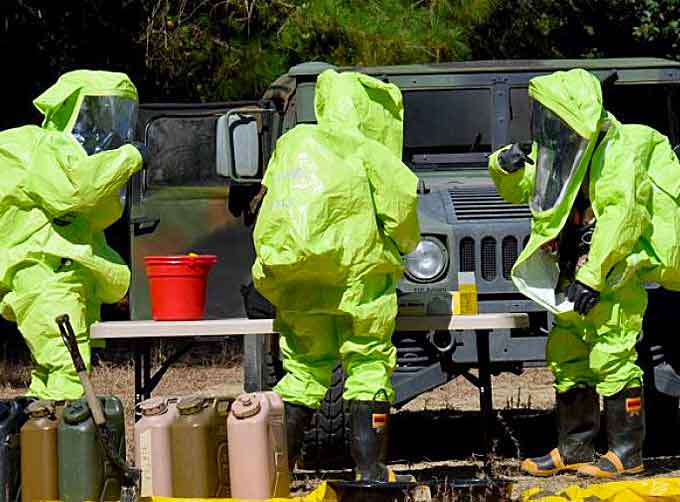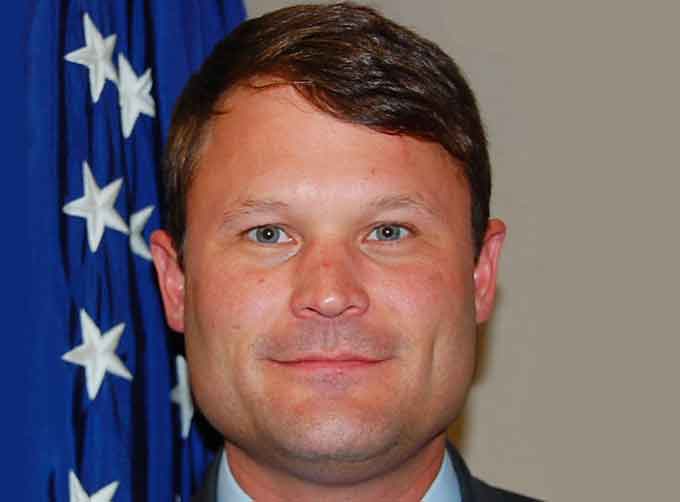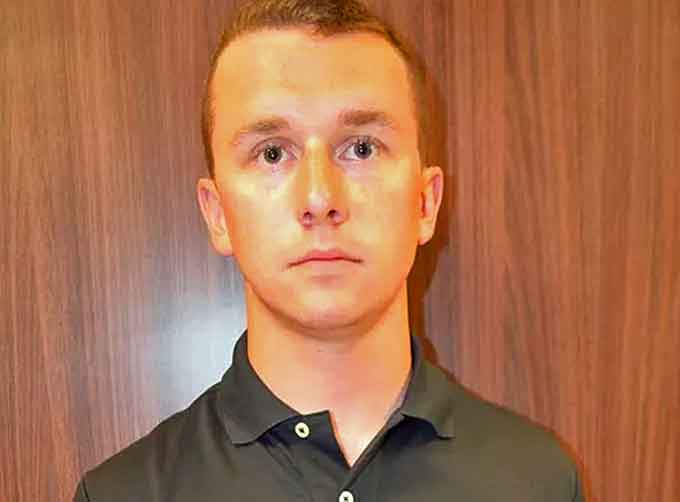
Ryan Keith Taylor, 24, a soldier at Fort Polk, has been sentenced to 135 months in prison, to be followed by five years of supervised release, for manufacturing, possessing and detonating a chemical weapon in the Kisatchie National Forest.
Kisatchie National Forest, the only National forest in Louisiana, is located in the forested piney hills and hardwood bottoms of seven central and northern parishes, and adjacent to the Fort Polk Army installation in Louisiana.
The sentence was announced by Assistant Attorney General for National Security John C. Demers and U.S. Attorney David C. Joseph for the Western District of Louisiana, and was issued by U.S. District Judge Jay C. Zainey.

“Taylor produced and detonated a chemical bomb near Fort Polk, causing injury to his fellow soldiers who responded to and investigated the incident,” explained Assistant Attorney General Demers.
“Today’s sentence holds Taylor accountable for his crime and makes clear that we will not tolerate such conduct.”
“I want to thank the agents and prosecutors who are responsible for this result and our military and local law enforcement partners for their significant contributions to this investigation.”

“Supporting and protecting our soldiers is of utmost importance to my office,” said U.S. Attorney Joseph.
“Those serving our country put their lives on the line daily to protect us. They should not be put in danger needlessly.”
“The chemical weapon the defendant created in this case is banned under international and national laws because of its terrible effects on the human body.”
“I want to thank our U.S. military, federal and local law enforcement for their combined effort investigating this case and bringing this defendant to justice.”
According to the June 11, guilty plea, Taylor detonated an explosive device containing chlorine gas on the morning of April 12, 2017 in the Kisatchie National Forest near Fort Polk.
Three U.S. Army soldiers who were conducting a training exercise nearby heard the explosions and found Taylor standing near his vehicle filming the explosion with his cell phone.

They then questioned Taylor and reported the incident to military police.
Upon arriving at the site of the explosion, Fort Polk military police investigators examined the scene and began collecting samples at the blast site.
One investigator filled a plastic bag with a rock coated in an unknown substance. The bag immediately popped and the investigator’s plastic gloves and boots began to melt.
He also began to experience difficulty breathing and his skin started burning. Law enforcement later detained Taylor at Fort Polk and searched his vehicle.
During the search, investigators found remnants of the explosive device and chlorine residue, which one investigator inhaled and touched, causing him to be hospitalized.
During the course of the investigation, law enforcement agents found bomb-making notes, materials and chemical residue in Taylor’s vehicle, apartment and storage building.
The two victims who inhaled the chlorine gas were treated multiple times for their injuries and effectively ended their military careers.
The following agencies were involved in investigating the case:
- The U.S. Army Directorate of Emergency Services, Military Police, Criminal Investigation Command, and Military Intelligence/Army Counterintelligence Gulf Coast at Fort Polk,
- The FBI and the FBI’s Joint Terrorism Task Force
- The Louisiana State Police
- The Vernon Parish Sheriff’s Office, and local police and fire agencies in Vernon Parish

















